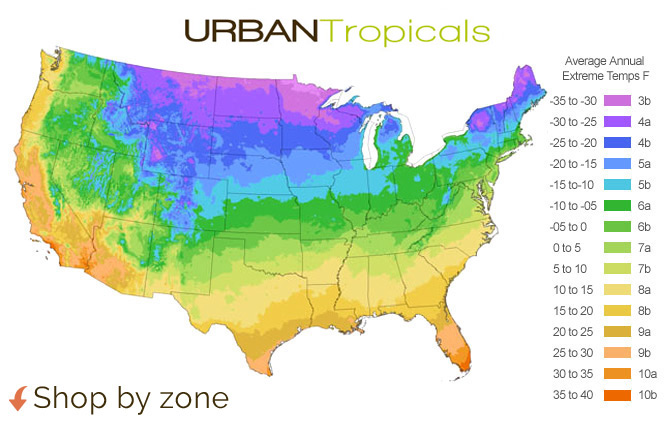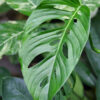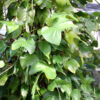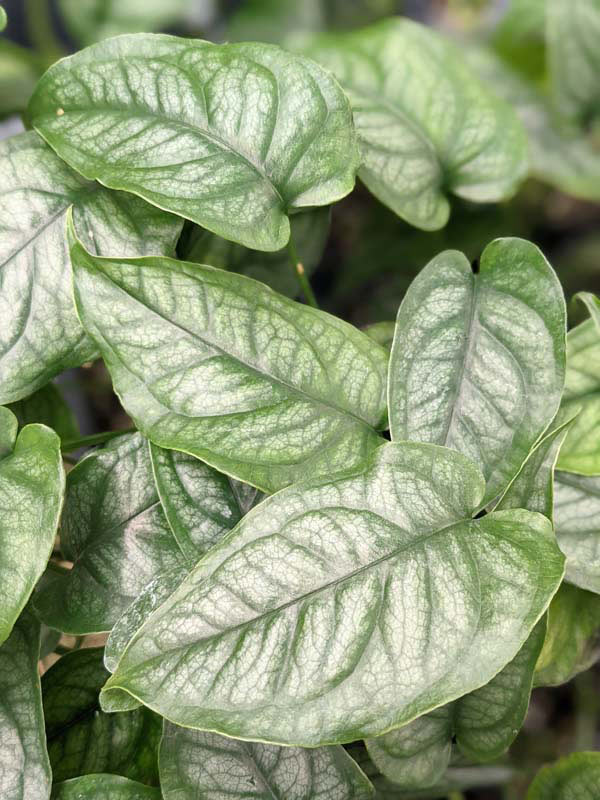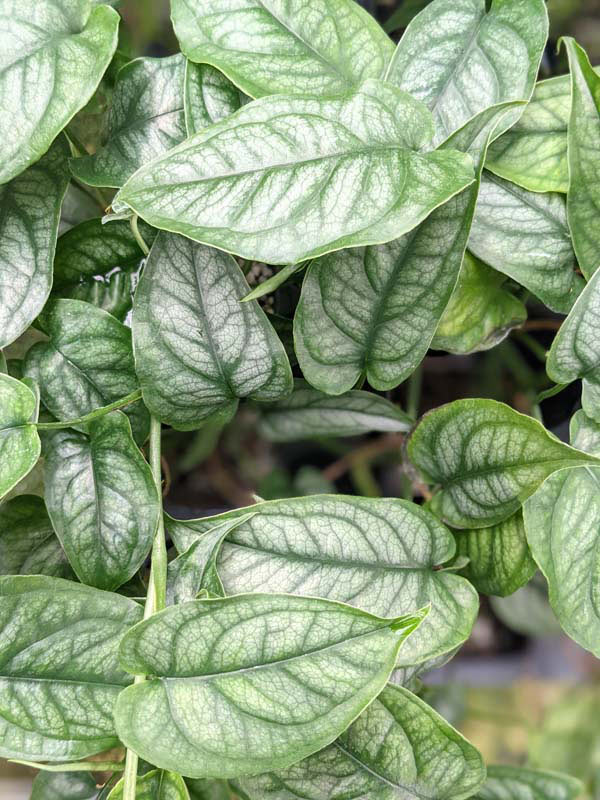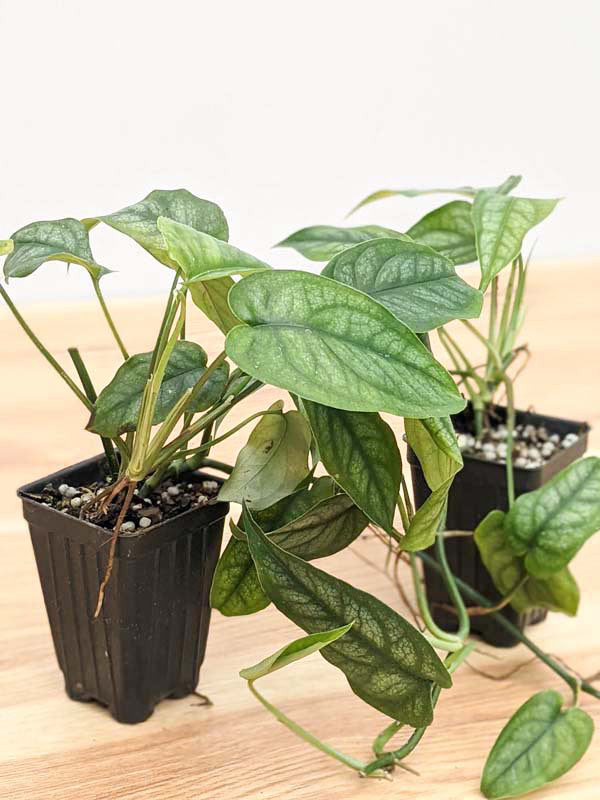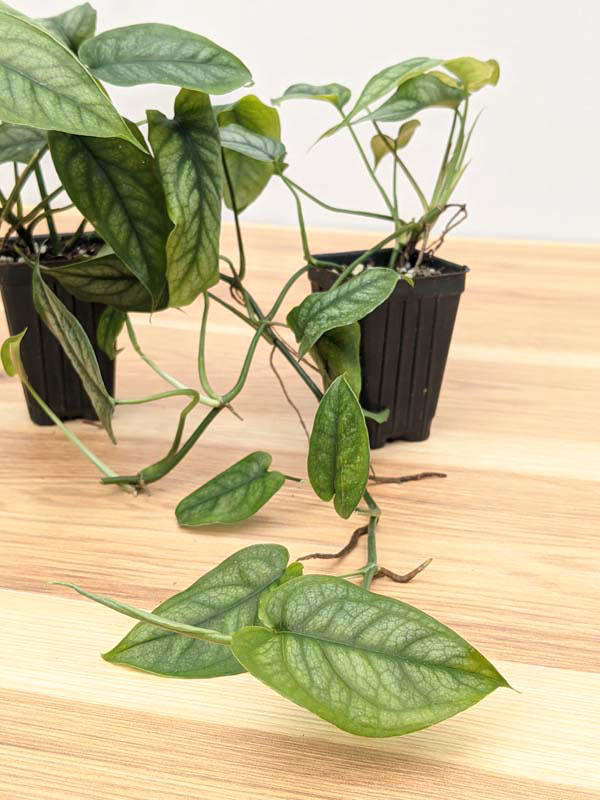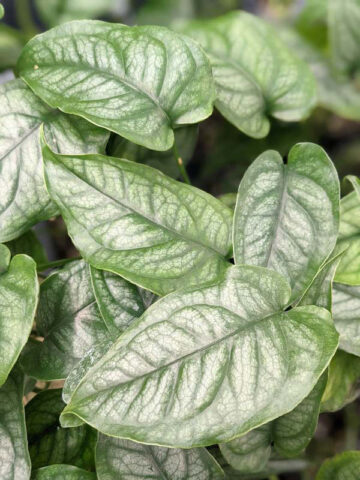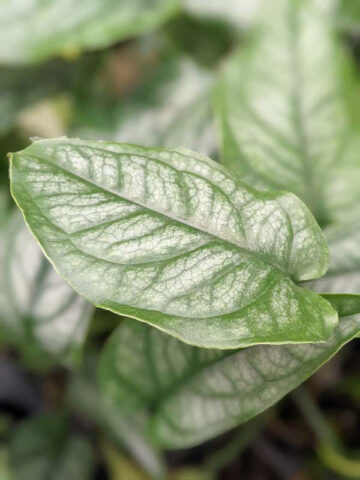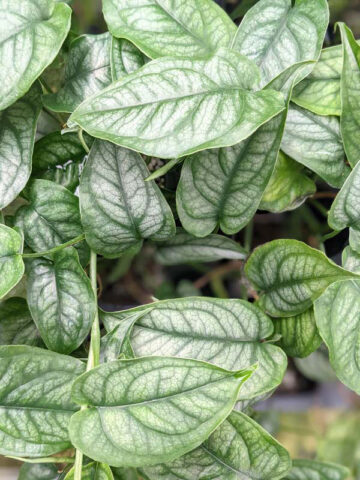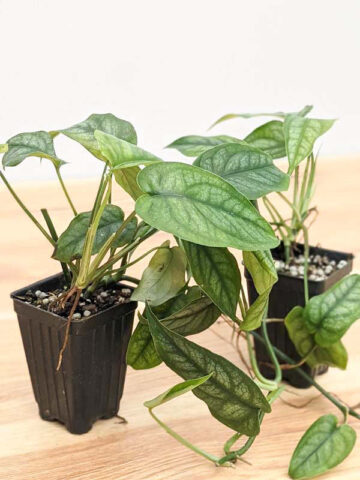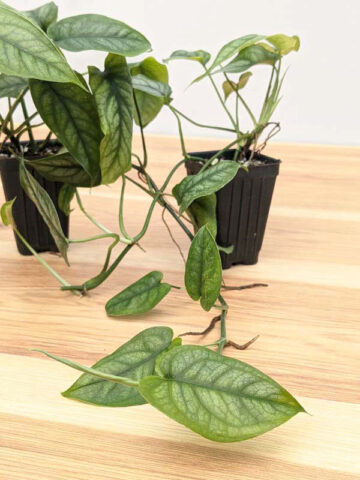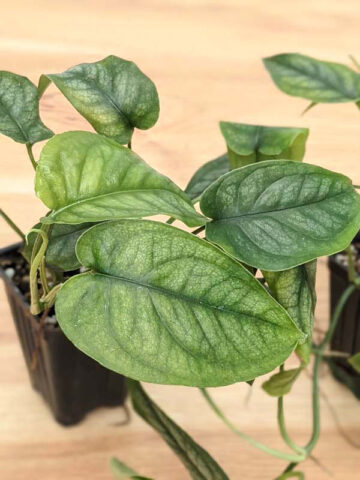Monstera are very easy to grow tropical plants that require little care indoors or out. Like other aroids, many species of Monstera can be grown as houseplants, or outdoors in mild climates. They thrive in moist soils with high organic matter and grow best when provided with a mossy post or burlap wrapped pole to climb. Monstera plants can be grown in pots, hanging baskets or outdoors as a ground cover or beautiful tree wrap. Indoors plants thrive at temperatures between 65°- 90°F and in lower light conditions than other house plants. In the ground or up an arbor, Monsteras get big and are often unrecognizable from their potted juvenile state. They add a wonderfully tropical accent to any well-lit space or cascading from your favorite hanging planter. In very cold zones a containerized Monstera can be brought inside for the winter months. Be sure to avoid frost and freezing temperatures.
The growth rate and leaf color of Siltepecana will vary greatly depending on soil type, sunlight, temperature and other factors. A few leaves are often trimmed prior to shipping to reduce transpiration and travel stress.
|
OUTDOOR
Zone 9b-11
|
PATIO
Zone 4a-11
|
|
SOIL TYPE
Rich Moist
|
% SUN
70-85%
|
|
POT SIZE
2x2x3″ Deep
|
INCLUDES
One Plant
|
When you receive your new Monstera, there is no need to worry about planting right away. Your new plant can be stored for a while by simply placing it in a bucket with about a half inch of water in the bottom and moving it to a shady location. You can then add some mulch to keep your plant standing upright. The mulch will also supply nutrients while in storage. This will give you plenty of time to select the ideal location for your new Monstera.
Before leaving, Siltepecana Monstera plants are inspected, watered, and pruned. Larger plants, generally those that ship in 8″ pots or with totems, will be topped to 36″ or 48″ overall, depending on the variety, if necessary to facilitate shipping. Your new plants’ pot is then bagged to ensure that the soil stays in the pot and not loose in the box. Plants are tissue or kraft paper wrapped and secured in place with natural biodegradable peanuts.


